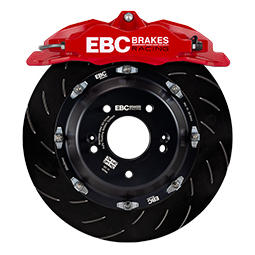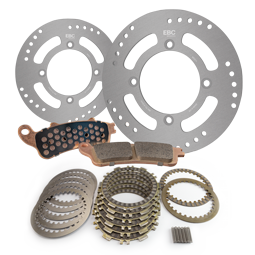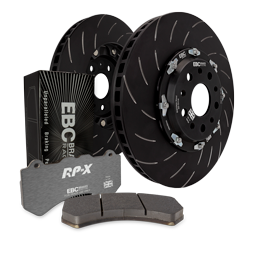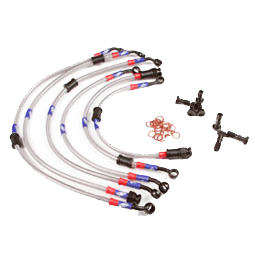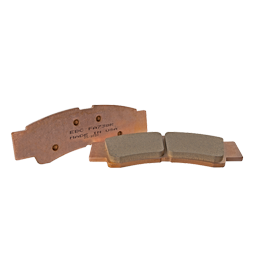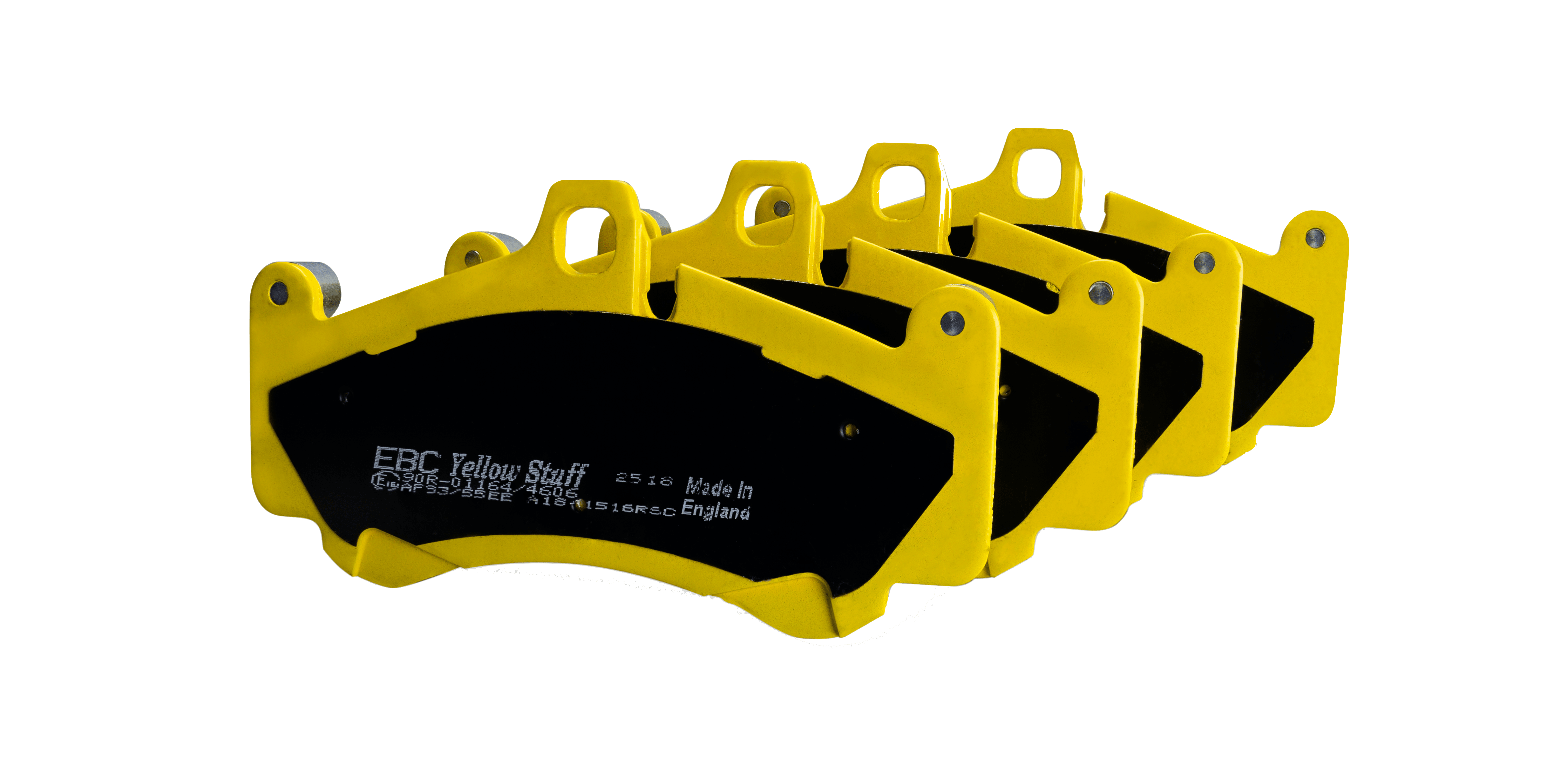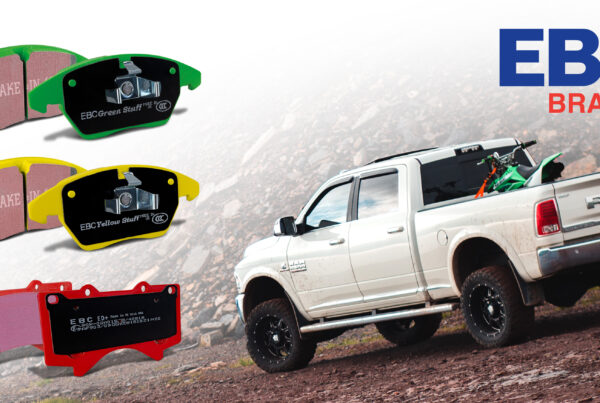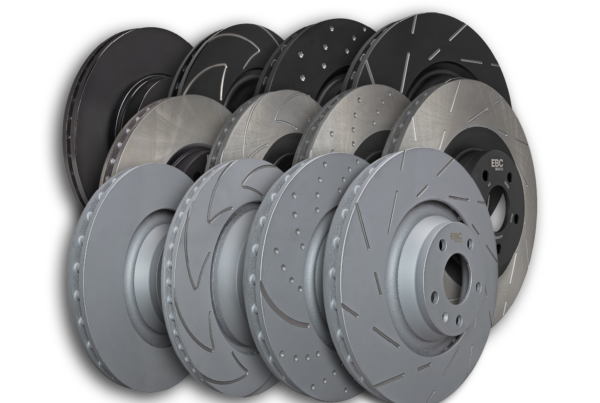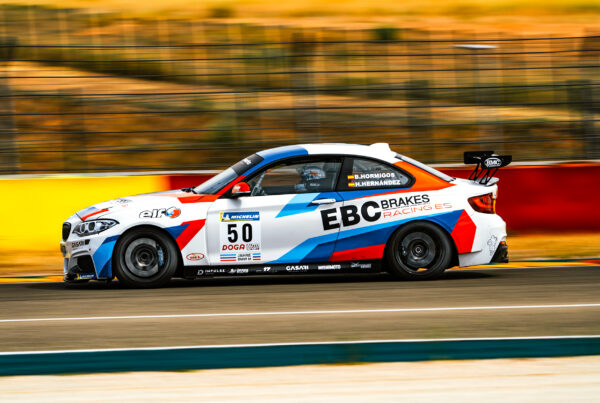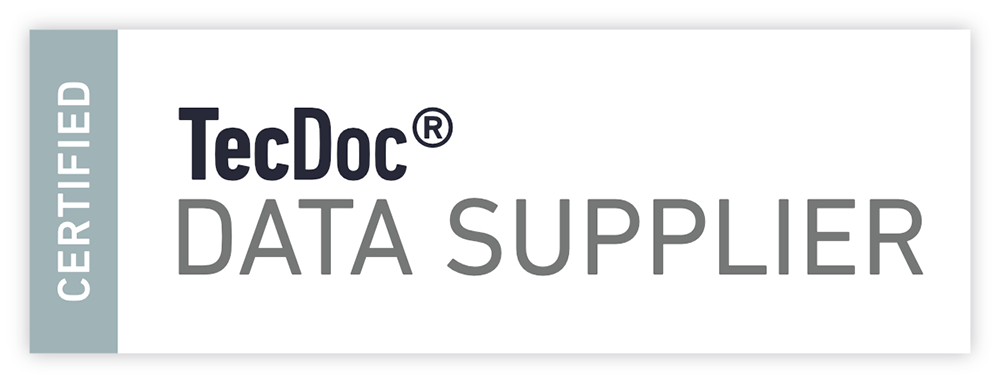Here are some reasons and pointers for you
Firsts of all brake squeal can happen with ANY brake pad, pad type or brand and on almost any vehicle
Facts are
- Brake squeal always happens within the first 200-500 miles and usually goes away after that
- It depends massively upon brake disc/rotor condition. A used rotor with a lip at the edge or an uneven surface can mean double the time for any noise to stop.
- On automotive cast iron rotors with an uneven condition, the ideal fix is to have them machined on a Pro Cut lathe. A used rotor that is skimmed on the Pro Cut lathe is actually better than a new rotor provided the thickness minimums are respected. The cast rotor matrix settles after use. (Pro-Cut UK|Pro-Cut USA)
- There are different types of Squeal ranging from “Creep Graunch “ which is a small noise as you release the brake from a standstill, usually worse in reverse and is hard to rectify up to brake squeal referred to under point 1)
Remedies
- Make sure your pads have noise shims, provided on all EBC pads.
- Allow pads to bed in and if noise continues after 500 miles give the brake system a good workout with a few heavier brake applications on a safe road
- Check caliper condition, calipers need to be removed and serviced every 5-7 years or exchanged. Sliders and pins in calipers corrode and cause pad drag that leads to brake overheat and squeal.
